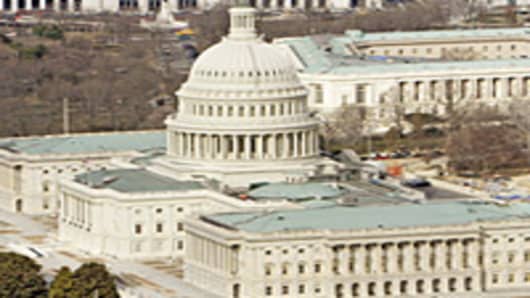Talks have taken place on almost a daily basis recently with both sides stressing that some differences at this stage are solely in the language of the bill. Both the Dodd and Corker camps say they remain hopeful a compromise package will be reached.
The key obstacle remains consumer protections for financial products. As CNBC.com first reported, negotiators came into the weekend with Corker and the committee's senior GOP member, Richard Shelby of Alabama, having rejected Dodd's latest proposal, which called for a watered-down version of the new regulatory entity defined in the House's reform bill approved last year.
The Dodd proposal, a copy of which was obtained by CNBC.com. envisioned a a Bureau of Financial Protection, BFP, within the Treasury Department, with a director appointed by the president. The bureau would have limited autonomy as well as rulemaking and enforcement authority.
The proposal was meant to address fundamental GOP concerns over the creation of a powerful independent agency whose policies and actions could potentially clash with existing regulators, creating safety and soundness issues within the financial system.
The House's version of the bill calls for the creation of a very powerful, stand-alone entity called the Consumer Financial Protection Agency, an approach first advanced by the White House.
Dodd's original draft legislation in November also included the CFPA concept, but Republicans quickly rejected it along with other components, forcing the committee chairman back to the drawing board.
Dodd's BFP proposal was described as something Republicans could never accept, according to one source close to the negotiations, and represents little if anything of a compromise.
The views of Corker and Shelby appear to be pretty close on this point in that they support some modest safeguards, but prefer them in the hands of existing regulators.
r
Observers say the development suggests Dodd may be on the verge of changing course and crafting a bill more along party lines, something he has suggested he is prepared to do if a bipartisan dead end is in sight.
"The wheels have come off completely from any bipartisan effort," said Robert Glauber, a former senior Treasury official in first Bush administration, who served as point man on post savings-and-loan crisis reform efforts. "I think Dodd will go ahead on it alone."
Consumer protection would be a key component, especially since the agency concept came out of the White House early last year. In return, other measures—such as consolidating banking regulation—would be watered down to increase support.
Dodd has been working closely with Republicans since his first draft was deemed dead on arrival, first with Shelby and more recently Corker, after Shelby and Dodd reached an impasse in early February.
Another problem area is the regulation of over-the-counter derivatives. Sources say it may not be included in the draft legislation underway and would instead be handled as an amendment later on in the legislative process.
There has, however, been general agreement on other key measures in the package, which include the creation of a systemic regulator council and federal authority to wind down the operations of wobbly too-big-to-fail financial firms to avoid a shock to the system, as was the case with Lehman Brothers in September 2008.
Republicans have been adamant about reducing, if not eliminating, the likelihood of federal bailouts, such as those given to AIG , Bank of America , and Citigroup.
Shelby's staff has been working on an alternative version of a bill, which has been described as a serious substitute to the Dodd-Corker one and is also bipartisan in content.
Towards that end, though it will not have anything strong on consumer protection, it will also not address reform of such governmentally-sponsored enterprises as Fannie Mae and Freddie Mac , according to a source familiar with its broad outline. Avoiding the issue of the GSEs, which many GOP members consider a contributing factor in the financial crisis, would make any bill more attractive to Democrats.
In addition, the bill would include some resolution process for intervening in the affairs of struggling too-big-to-fail firms with minimal or no expense to taxpayers.
In much the same way, it would stop short of institutionalizing a systemic risk council, which is in the House version of the reform bill and said to be safely included in the Dodd-Corker work in progress, and instead provide more resources, such as staff, for the equivalent of a presidential working group, and thereby limit any enhanced power for the Fed, say sources.
At the least, Shelby's bill, would "keep their side in line," said the source.
Financial reform—always among President Obama's top legislative priorities—has assumed even greater importance since health care reform stalled.
Washington veterans say the issue is looking more like an ideological standoff.
"The administration has been very public about the need to protect Main Street America from predatory bankers," said Glauber, who recently served as interim, non-executive chairman of Freddie Mac. "And on the Republican side you can't sacrfice safety and soundness."



